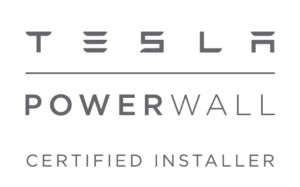Solar panels are a significant investment in clean, renewable energy and a step toward reducing your carbon footprint. If you’re tempted to clean your panels, rain water typically cleans them sufficiently, particularly if you’re on Cape Cod or Southeastern Massachusetts. If you are surrounded by trees or there is buildup of scum on your panels, you can give them a gentle cleaning. However, using dish detergent to clean your solar panels might do more harm than good. Here’s why and how you can properly maintain your panels without compromising their performance.
Dish Detergent Can Leave Residue
Dish detergents are designed to cut through grease and grime on dishes, but they often contain chemicals that leave a soapy residue. When applied to solar panels, this residue can create a thin film that reduces their ability to absorb sunlight efficiently. Over time, this can decrease the energy output of your system, negating the benefits of cleaning.
Harsh Chemicals and Power Washing May Damage the Panel Surface
Many dish detergents contain harsh chemicals that, while effective on kitchenware, can degrade the materials used in solar panels. Prolonged exposure to these chemicals can cause micro-abrasions or weaken the protective coatings on the panel’s glass surface, leading to long-term damage.
Power washing is a definite NO as the pressure can cause cracks in the panel glass.
It’s Not Environmentally Friendly
One of the key reasons for installing solar panels is to promote environmental sustainability. Dish detergents can contain phosphates and other substances that are harmful to the environment. When rinsed off your panels, these chemicals can enter the local ecosystem, affecting plants, animals, and water quality.
Better Alternatives Are Available
To clean your solar panels effectively and safely, opt for methods and products specifically designed for this purpose:
- Use Clean Water and a Soft Cloth or Sponge: For most cleaning needs, a gentle rinse with clean water and wiping with a soft, non-abrasive cloth is sufficient.
- Rainwater Is Often Sufficient: In many cases, natural rainwater does an excellent job of washing away dust and debris from your solar panels. Unless there is significant buildup, additional cleaning may not be necessary.
- If the dirt is coming from tree limbs, we strongly suggest removing any tree growth over or close to your array.
Conclusion
While it might be tempting to use dish detergent as a quick fix for cleaning your solar panels, doing so can lead to reduced efficiency, long-term damage, and environmental harm. By choosing the right cleaning methods and relying on rainwater for minor debris, you can ensure your solar panels operate at peak performance, helping you save money and reduce your carbon footprint for years to come.





